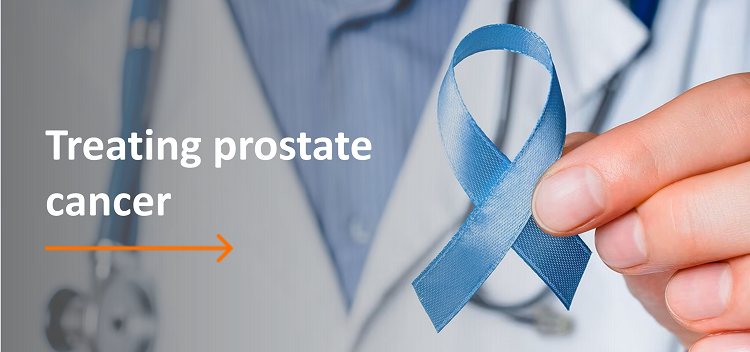The urologist is a doctor specialized in male and female urinary and male genital problems. He is involved in the diagnosis, monitoring, surgical and medical treatment, and follow-up of prostate cancer. He is the one responsible for removing the tumour
The radiation oncologist or radiotherapist is a doctor specialized in the treatment of cancers with radiation that destroys the cancer cells locally (radiotherapy). In collaboration with an expert team that includes a physicist and a dosimetrist, the radiation oncologist prescribes the dose of radiation needed to treat the tumour (external radiotherapy and/or brachytherapy), identifies the areas to be treated and those to be protected, and plans the radiotherapy sessions. These are carried out by a team of radiation therapist. Regular consultations allow the radiation oncologist to check that the treatment is going well and to prescribe medication to treat any adverse effects. When the radiation oncologist is specialised in brachytherapy, he is sometimes called a brachytherapist.
The oncologist, or cancer specialist, is a doctor who is specialized in cancer and its treatment. He may be a chemotherapy specialist (medical oncologist), a radiotherapy specialist (radiation oncologist), an organ specialist (pneumologist, hepatogastroenterologist, neurologist, etc.) or a surgeon specialized in cancer (urologist, etc.).
The pathologist is a doctor who examines the cells and tissues taken during a biopsy or surgery, under a microscope. His role is instrumental for the diagnosis and choice of upcoming treatments during the Multidisciplinary team meetings (MDT).
The radiologist is a doctor who interprets images of the body or organs taken during radiology exam, such as X-ray, a scanner, or an ultrasound scan. Thanks to medical imaging techniques, he or she can perform minimally invasive medical procedures for diagnostic or therapeutic purposes. This is known as interventional radiology. He is assisted by a radiology technician.





